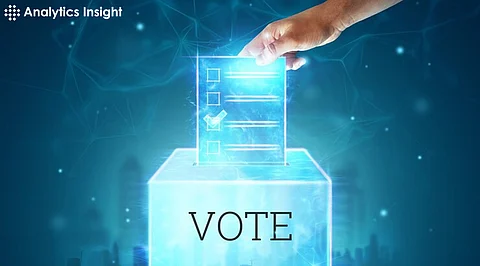

Over the past few years, integrity has become the subject of heated argument as far as elections are concerned. According to various claims, traditional voting systems suffer from problems like fraud, failure and lack of transparency which has led to a global discussion on enhancement of electoral systems. Among them is the inclusion of blockchain voting systems which has been touted as a revolutionary system. But do they really solve these problems of election integrity or are they just dreams with no realistic hope of becoming a reality?
A blockchain is essentially a distributed ledger, which means a structure for keeping records of transactions across a network of computers in such a way that it is impossible to change or alter any transactions stored in it. Regarding elections and voting, the integration of blockchain technology offers a vote banking platform where one can cast, confirm and tally votes without the need for central authority. Consensus is the term used in this case for the need to agree upon transactions which are captured in the form of votes, each vote is like a transaction and placed in an encrypted sequence of transactions which is stored in blocks and visible to all participants in real-time.
Blockchain's open ledger ensures that every vote is publicly visible while maintaining voter anonymity. This transparency can help eliminate suspicions of tampering, as all stakeholders can independently verify the vote count.
The cryptographic mechanisms inherent in blockchain make it highly resistant to hacking. Once a vote is recorded, it cannot be altered without the consensus of the entire network, making tampering virtually impossible.
Voting through the use of blockchain technology may make it possible for citizens to vote without physically being present in their countries. It is particularly useful for non-resident citizens, soldiers, or the physically challenged.
Extensive and costly arrangements are usually needed in normal voting systems right from preparing the election venues to the manual processing of ballots. Such systems can be replaced with the use of block chain technology in which the results are automatically processed within seconds with little or no human help.
No matter how prefect vote is cast in the voting system based on blockchain, each and every vote will be regarded to a particular source but not disclosing the actual voter. This means that even after the elections, the possibilities of losing the records of the voters will not happen and therefore no more issues concerning miscounting will arise.
Not everyone has access to the technology or infrastructure required for blockchain voting, potentially disenfranchising certain groups, particularly in rural or underdeveloped areas.
Voters may be put off by complex blockchain systems, which can lead to confusion and mistakes or, inversely, no participation at all. Thus, user-friendly systems and proper voter awareness are crucial for large-scale adoption.
Present blockchain technologies are limited in their ability to support the multinational scope of national elections. If certain transaction processing times too long, people may lose trust in the system.
Many voters will not trust the system claiming that it is created using core concepts of blockchain technology, as they may not be aware of what is behind the system.
In most countries, electoral law does not recognize or endorse the paradigm of voting through Blockchain. Enabling these systems would mean drastic changes in the law, and standardization processes would have to be put in place.
While the introduction of blockchain voting systems offers the prospect of rectifying several challenges associated with conventional voting systems. Their implementation will not only be problematic but also impossible without addressing profound technological, societal and legal barriers.
In the light of the struggles of the global community towards achieving proper elections, one may say that all these innovative efforts serve a very important purpose, even if it wouldn't be the permanent solution. Mingling it with sound cyber defense, citizen enlightenment, and other conventional measures would lead to the realization of a more open and credible electoral process in the near future.
